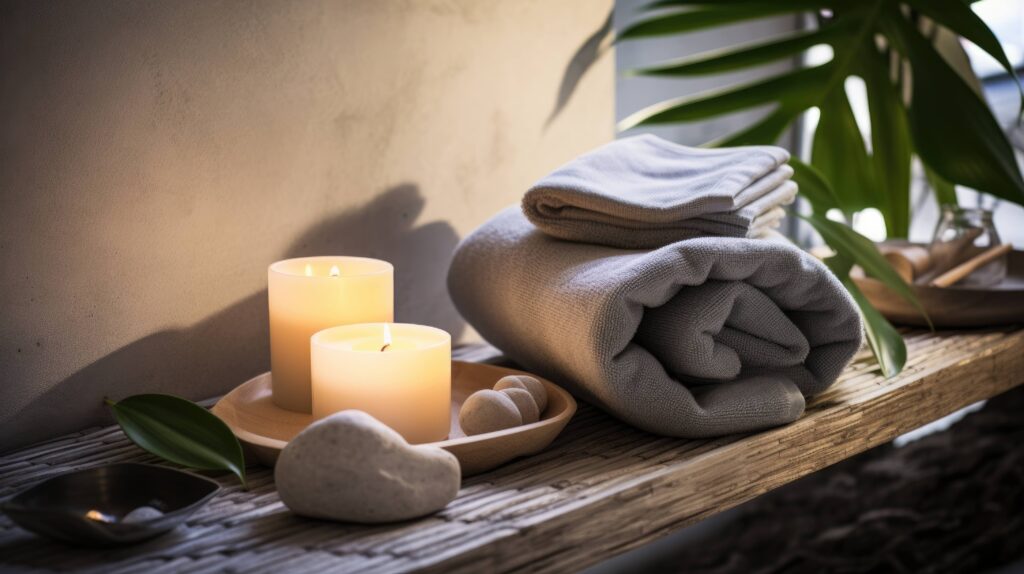“Only the disciplined are truly free.
The undisciplined are slaves to moods,
appetites, and passions.”
~ Stephen Covey ~
There’s a lot of talk about self-care these days, especially overworked and under-paid teachers! Since you and I are part of that community, self-care goals come up a LOT!

A Little Less Talk;
A Lot More Action!
We teachers talk about getting more self-care, taking more time for ourselves, saying ‘no’ to others more often, and triving to do less, but is it just talk? Are we able to find ways to walk that talk consistently enough to feel less stressed and overwhelmed?
I’ve faced a whole heap of stressful times the last couple of years: the near-death of my child and the continued chronic illness that caused it, both adult children moving home, becoming self-employed, changing the focus of my career: plenty for this lady!
I found that the near constant barrage of in-my-face needs that filled my days required an entirely new way of thinking about self-care. Self-care that took chunks of time out of my day were simply not enough to create the kind of internal peace necessary to be functional and at my “better;” best was not even on the table!
I began to make space for short, mini-retreats throughout my day. Talk about a world of differen
Want To Know How?

The first thing I did was look at the work I wanted to accomplish each day. Since a lot of my work is solitary now, I used a process called a Pomodoro to focus my attention for short bursts of time, taking a break about every 20 to 25 minutes. This process could work for you in your planning times, whether that happens at school or home.

Classroom Pomodoros
The problem I faced was that my daily “work” included attending to the needs of my invalid child: to supporting my family in ways that hadn’t been needed for nearly 20 years. To use the Pomodoro technique in managing the often spur-of-the-moment needs required some modification. I thought back to my teaching days in which I usually planned 3 or 4 lessons in a morning, sometimes group and sometimes individuals. Pomodoros work great for lessons because no lesson should take more than 20 with a few minutes for dismissal. Between lessons, I would sit and take stock of the classroom while getting a few shoulder stretches and deep breaths. I might add lighting a candle or starting some soft music to bring down the energy of the classroom.
I began to take short breaks after attending to my child so I could manage my emotions as well as get myself centered and grounded before moving back into “work” mode. Just having the awareness of taking a little break to calm myself and honor what I was going through helped me get into a more productive frame of mind.
Again, thinking back to my classroom days, I remembered how taking a mini break, no more than two to three minutes did as much for that class as it did for me. When I sat down, put on my signal that I was not available, and began to be still, it seemed like the entire classroom felt the shift in my energy and the classroom energy shifted too! I firmly believe it did the same for my child who, after 8 or 9 months, began to show real improvement and started using similar quiet moments to deal with the mental health issues that came along with the physical challenges.
In both my class and my home, there was a peaceful calm that settled over the environment, taking some of the intensity off of the moment and the day.
Pomodoros for Coaching
You may be thinking, “What about being available for questions and support of the students?” Pomodoros work great for this, too! We had a communication system in our class for letting teachers know that help was needed. Students made beautiful name cards that, when they needed help, would be placed beside a guide who was otherwise engaged. When the teacher was free, they would pick up the stack of cards, turn them over to get the first card on the top and begin to go around the classroom. Do this for 25 minutes (one Pomodoro) and then take that two to three-minute break.
This routine will begin to have a rhythm to it and your students will feel the flow. They may even pick up on the taking of breaks and follow your lead. You are being a wonderful model of staying fresh and rejuvenated throughout the day.
I’ve made a little Cheat Sheet for using the Pomodoro Method to stay refreshed throughout your day, so you can end your day with energy and vitality. Pick it up here!
And have a great day!
“Almost everything will work again if you unplug it for a few minutes, including you.”
~ Anne Lamott ~





